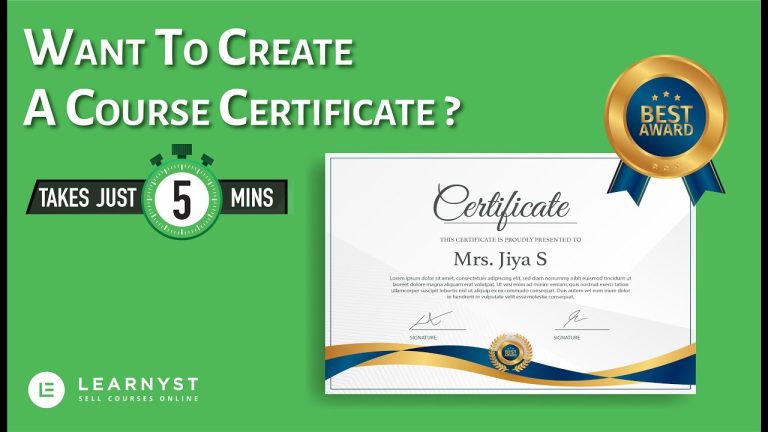In today’s competitive job market, continuous learning and skill development are essential for career growth. Online courses and tutorials have become popular avenues for individuals seeking to enhance their knowledge and yt teacher expertise. One common question that arises for learners is whether these courses offer certifications or completion certificates. In this article, we’ll delve into the significance of certifications and completion certificates and explore how they can benefit you in your professional journey.
Why Certifications Matter:
The Value of Accredited Certifications
In the realm of online learning, certifications serve as tangible proof of your skills and expertise. Accredited certifications are particularly valuable as they are recognized by industry professionals and employers alike. These certifications validate your proficiency in a specific subject matter and can significantly enhance your credibility in the eyes of potential employers or clients.
Boost Your Resume and Stand Out
In a sea of job applicants, having certifications listed on your resume can make you stand out to recruiters and hiring managers. Certifications demonstrate your commitment to continuous learning and showcase your ytteacher.net dedication to mastering relevant skills. Employers often use certifications as screening criteria when shortlisting candidates for interviews, giving you a competitive edge in the job market.
Stay Relevant in Evolving Industries
In fast-paced industries where technology and trends evolve rapidly, staying updated is crucial. Certifications not only validate your current skills but also demonstrate your willingness to adapt to new technologies and methodologies. By pursuing certifications in emerging fields or specialized areas, you can position yourself as a forward-thinking professional capable of navigating industry shifts with ease.
Completion Certificates: Recognizing Your Efforts
Celebrating Milestones with Completion Certificates
While certifications validate specific skills or competencies, completion certificates acknowledge your efforts in completing a course or tutorial. These certificates serve as a testament to your dedication and commitment to learning, regardless of whether the course offers formal accreditation. Completion certificates can be valuable for personal satisfaction and motivation, providing a sense of accomplishment as you progress in your learning journey.
Tracking Progress and Setting Goals
Completion certificates also play a practical role in tracking your learning progress and setting achievable goals. As you complete various courses or tutorials, collecting completion certificates can serve as milestones in your professional development. Setting goals to earn a certain number of certificates within a given timeframe can help you stay motivated and focused on your learning objectives.
Sharing Achievements and Building Your Brand
In today’s interconnected world, sharing your achievements can help you build a strong personal brand and network with like-minded professionals. Displaying completion certificates on your LinkedIn profile or personal website demonstrates your commitment to continuous learning and positions you as a proactive and ambitious individual. These certificates serve as conversation starters during job interviews or networking events, showcasing your proactive approach to skill development.
Conclusion:
In conclusion, certifications and completion certificates play distinct yet complementary roles in your professional development journey. While certifications validate specific skills and enhance your credibility in the job market, completion certificates celebrate your learning milestones and provide motivation to pursue further education. Whether you’re aiming to advance your career, stay relevant in evolving industries, or simply broaden your knowledge, both types of certificates can be valuable assets. By investing in accredited certifications and collecting completion certificates along the way, you can unlock new opportunities and propel your career forward.

